

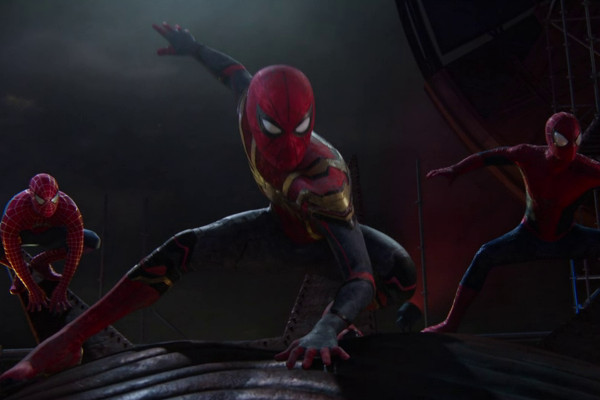
The fundamental issues with the MCU's take on Spider-Man have been discussed in the entry for Homecoming, and are met head on here. No Way Home is long - at nearly 2-and-a-half hours it's the longest Spider-Man movie to date - but it doesn't feel stretched, as it has more than enough incident to fill three Spider-Man movies, let alone one.
It's probably one of the dozen or so best MCU movies, as befitting the ranking here, but with that status it's just a jarring reminder that superhero films are so much better outside of the glib machine that is Marvel product. A standout for Marvel would just be an average film for the Raimi take on Spider-Man, a fact brought home by the bringing back of so many past elements, only to illustrate how little depth they have in comparison to their first appearances.
It's not that that Spider-Man films from 2002-2007 were giants of the cinema with masses of emotional depth, but they had sincerity and a conviction to their cause - yes, even the one where Peter went Emo. (The Andrew Garfield movies of 2012 and 2014 weren't bad, either, but perhaps came a little too soon on the back of the Maguire takes, a reboot series before the dust had settled, despite Garfield's best efforts.)
The issue is that the MCU films demand different things from the audience. One minute it's rammed full of tiring meta humour, where nearly every supervillain from the five non-Holland Sony movies is brought back just to have the ludicrousness of their origins flagged up by other characters, with a wink to the audience. 90% of the humour isn't within the film, it's humour that points out, humour that says "yes, we know it's just a movie, too." The next, we're supposed to feel genuine pathos and be touched by the emotions of characters that the movie has made pains to make sure we don't feel are real in the first place.
Essentially it's like the painfully self-aware new version of Doctor Who, where we're supposed to laugh along at how knowingly silly it is one minute, then break out the crying towel and get genuinely emotionally touched the next. It perhaps doesn't help that two certain unmentionable introductions - because, barely-concealed spoilers - are the most mundane and underwhelming entrances you could possibly imagine.
There's also the concern that, even by its usual standards, the "Marvel Cinematic Universe" is getting too indulgent. An opening shows Daredevil, but without any explanation of who he is to those who don't watch his Netflix TV show, and a post-credits sequence makes clear you'll have to have seen another Marvel TV show to understand an upcoming entry. But more importantly, while the film is bloated by fan service, what would younger viewers get from this movie, composed as it is of reconstituted reference points from nearly 20 years gone by?
This is a fun movie. It moves, it has events and spectacle, and in some moments manages to recapture what made the characters good in the first place. But it also wastes them, takes away what dignity they had, and, in one of the most ill-advised scenes, Spider-Man asks if webbing can come out of... well, spoilers.
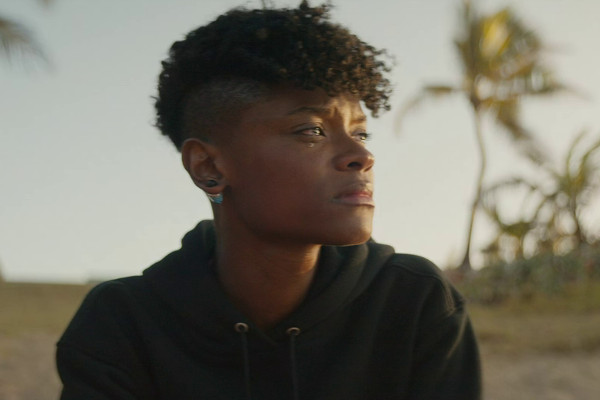
A film that studies the problems of what to do when you're making a sequel and your leading man has died. Ryan Coogler is a decent filmmaker, and uses the experience to craft a film based around grief. It acts as a nice tribute to Chadwick Boseman, who sadly died in August 2020 from colon cancer.
It's only been a dozen years since Letitia Wright was in Top Boy, where the only cat she was interested in talking about was bocatting. Yet here she is, elevated to the status of a headliner, and doing pretty well with it. Shuri perhaps isn't as interesting a character as the franchise would like to insist she is, but she holds things together well, with good support from the rest of the cast.
If there's one issue, other than the runtime (at 161 minutes, it's the longest MCU film to date, bar Endgame) it's that the film tries to take on too much in a sociopolitical sense. Recreating scenes of olden slavery, complete with slave owners performing a whipping, is perhaps a topic too dark and serious for a green screen superhero flick about a guy who can fly thanks to feathers growing out of his ankles.
Said "guy" is Prince Namor, the Submariner, decently brought to life by Tenoch Huerta Mejía. No longer the ruler of Atlantis, reputedly because of Aquaman, he's now ruler of Talokan, which is, at least, a nice reference to Aztec culture. Wakanda Forever was a sizeable hit in 2022, outperforming the fourth Thor movie, but not quite the cultural hit that the original movie was. Which is odd, as another film about blue people living underwater was a massive hit that year and this...
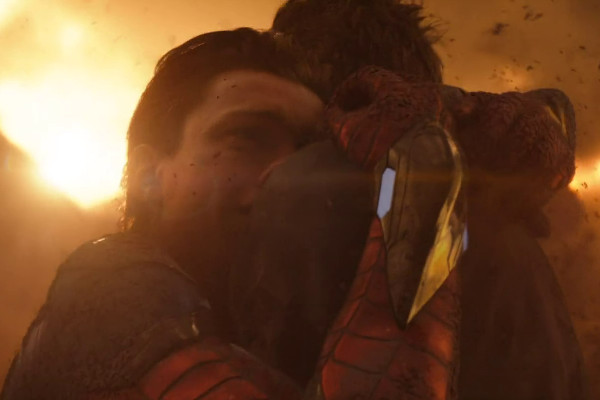
Something of a mess, albeit a sufficiently entertaining one, as sixteen major superhero characters (and seven minor ones) are crammed together in a non-stop action piece that lasts less than two-and-a-half hours. With 2019's Endgame there to conclude its hanging plotlines, this is very much one long, bloated middle act - the previous decade of the MCU acting as the first part.
Full of bluster, variable CGI and somewhat corny lines, there's very little genuine emotional attachment, with the most heartfelt moment coming between Thor and an animated raccoon. Although the Marvel movies are fun to watch, they do lack serious depth, particularly when all the characters are submerged beneath the franchise's trademark obvious humour.
Despite such detractions - and a rewatch has seen this entry drop three places - it's passable fluff, and Thanos, as questionably animated as he may be, does have a little more philosophical motivation than the usual Marvel villains. Despite the fact that most of the events were inevitably undone in 2019, the off-beat ending remains one of the genuinely original moments in a Marvel movie.
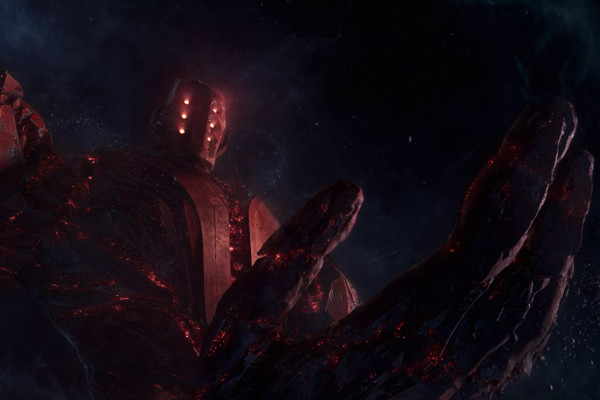
A surprisingly decent entry, Eternals was by some way the most critically panned Marvel movie upon its release. Like Shang-Chi, it limped into the top ten box office of 2021, probably just about making its money back, which was a line Marvel had perhaps begun to take for granted.
It's not perfect. The humour, when it appears, is as jarring and obvious as it is in nearly every other Marvel film, even drafting in Uncle Umed from Coronation Street. There's enormous chunks of exposition to explain what's going on, with even two-and-a-half hours not really enough time to tell a space opera that covers the entirety of human existence. Some performances fail to really come to life, and it has a dreary beginning, taking its time to click into gear. And lots of the dialogue creaks, groans and is plain corny, but no more so than most of the other films in the range.
Yet there are twists and turns, and questions of motivation and purpose. It would be wrong to call the film "cerebral", but by the standards of Marvel movies, it's perhaps the one that comes closest. Possibly its lack of connection with a wider audience comes down to the fact that this isn't really a film that makes the more "cosmic" side of Marvel accessible, but dares to present it face on and largely embrace it. There's no meta deconstruction of the Celestials here, it's a picture that fully explores its own SF possibilities. More questionable is some of the gore, and the MCU's first sex scene.
Although reference is made elsewhere in this article that it's unlikely there'd ever be an indie or art director working on a Marvel movie, Chloé Zhao makes this one come close, with some genuinely striking imagery in places. One proviso is that I didn't see this in the cinema, but only on streaming, so the sometimes striking/often just adequate visuals may have looked ropy on the bigger screen.
One part that does look horrific even on a small screen is an animated character who shows up in the first post-credits scene.. though he's joined in awfulness by the "accent" of Harry Styles... it not even being clear what the accent is supposed to be. Harry Style's surprise post-credits appearance was once left as spoiler tagged here, but it's been so long since this film came out it no longer seems necessary. His appearance in the MCU as Starfox now seems possibly in doubt due to the lack of commercial success of this entry.
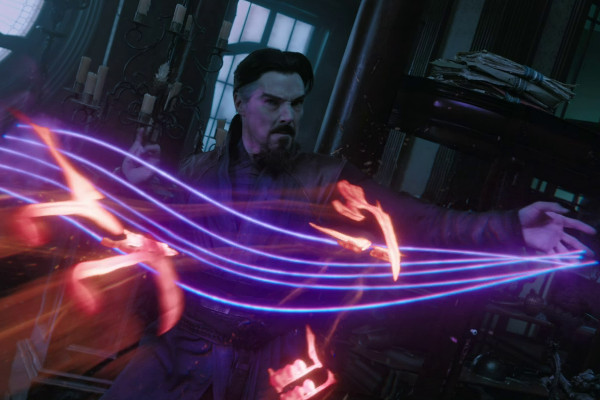
No other Marvel movie has taken as long to write up here as Dr. Strange in the Multiverse of Madness. Part of it is this site's narrow-focussed decision to write about the film series as it progresses - meaning this entry is surrounded by reviews saying there'll never be a Marvel movie made by a genuinely unique director, only for this to be helmed by Sam Raimi.
But there's other issues. Strange isn't a physical character on the page, but a metaphysical one, something that doesn't really lend itself to the cinema screen. However, Raimi seems to understand this point, giving us events like Strange being turned into a cartoon, or, perhaps most left-field, battling an evil doppleganger with musical notes.
It's a decent film in its own right, hence the high placing, but is it a decent Marvel film? Possibly not. The cinema was full of children who were clearly younger than the "12" certificate the films go out under, watching a film that should really have gone out as the old "15". This is Raimi delivering a Marvel horror movie, with the much-anticipated cameos from the newly-acquired Fox taking it in turns to be brutally murdered and dismembered.
Most problematically, from this point the Marvel films - mainstream products for a wide audience - began to get beholden to the various TV spin-off series. In an astonishing case of the tail wagging the dog, what should be supplemental spin-off works instead dictate the films, leaving anyone who hasn't seen WandaVision struggling to catch up. A serious misstep that's been frequently repeated ever since.
So, it's a flawed movie. Deeply flawed. It's also one of the ten best up to its point of release. A very.... strange... situation indeed. (Sorry!)
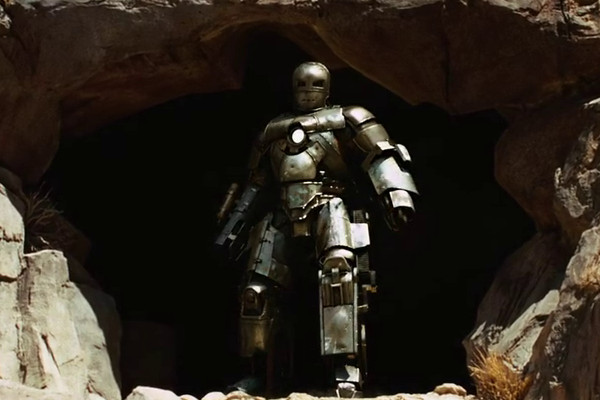
Over fifteen years on, the first Iron Man movie still retains a certain freshness and vitality, despite being retroactively tainted by later movies where Downey Jr. was prone to phoning in his glib-by-numbers performance. Here he's still the Downey Jr. that was in a rough patch, not the biggest box office star of the world, and there's a hunger to make it work. Iron Man was, to the general public, largely an unknown quantity, and the decision to retool Tony Stark as an egomaniac who would abandon the idea of a secret identity seems more related to behind-the-scenes vanity than the genuine ego of the character.
It's not without faults. Like a lot of the Marvel movies, it feels overlong, and the pyrotechnics can get tiresome before the end credits offer some respite. There's also a somewhat confused message at the film's core whereby, while acknowledging that the US are responsible for military intervention, the enemy of the picture are still Arabic warlords. Consequently it's a little unsettling to watch a surprisingly violent film, whereby audiences are expected to cheer as the all-American hero douses foreigners in flames. Mostly, though, the film works well, even if you do have to wonder how Tony's suited POV always features his head upright no matter what position he's in, and with a computer display several sizes larger than his helmet.